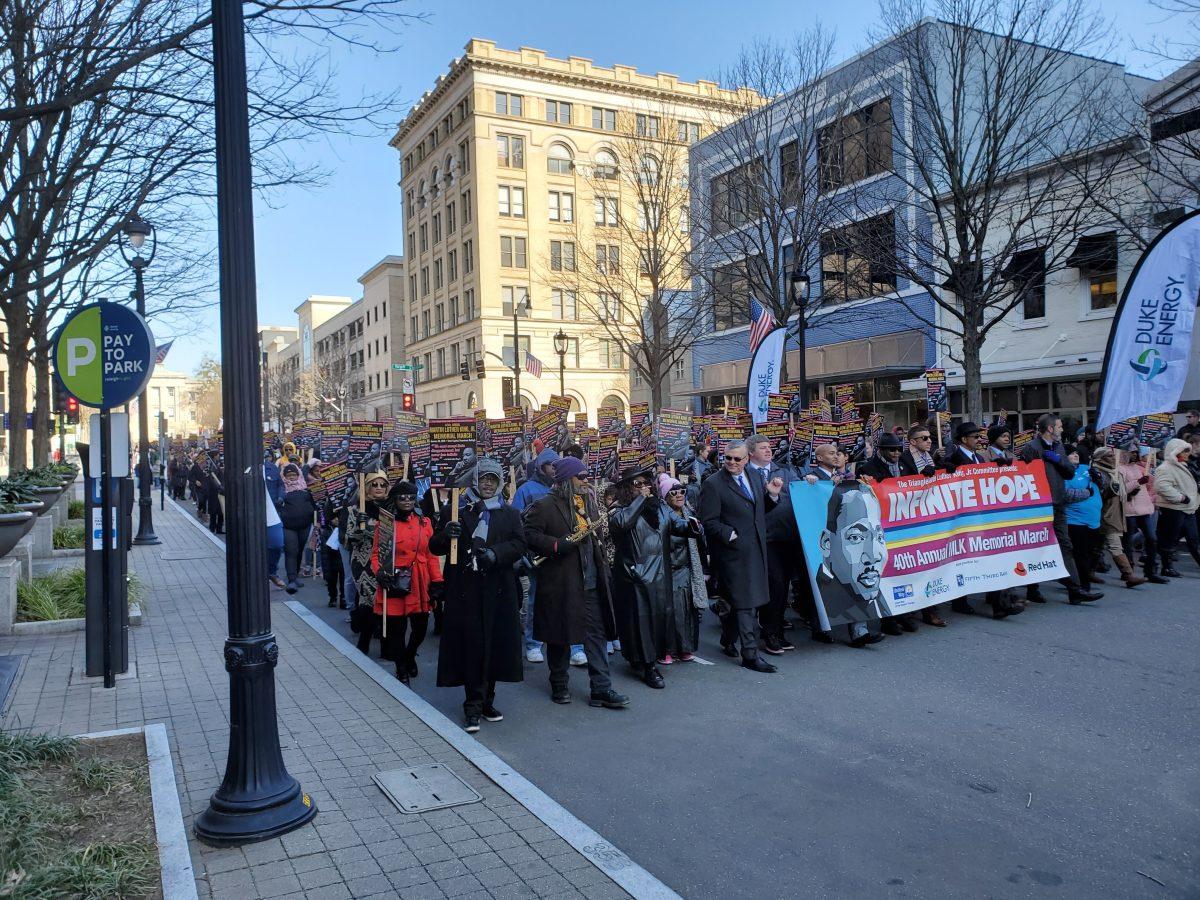Several hundred people gathered in downtown Raleigh on Monday, Jan. 20 for the city’s annual Martin Luther King Jr. Day march.
Keeping King’s spirit and message alive was central to the march, according to marcher Chris Morgan, since many groups across the country still face injustices.
“I think it means a lot to see different races, different nationalities, genders all coming together in peace,” Morgan said. “I think it just shows that what he fought for, what he stood for is still prevalent today. We all can come out here no matter what creed or what we stand for, whether it be Republican or Democrat, that we can all come out here and continue to fight for what he was pushing while he was alive.”
Charlesa Peoples, another marcher, was driven to come to the march after a recent experience.
“A couple of weekends ago, I visited down in Montgomery, Alabama,” Peoples said. “It was very inspirational to me, and I felt like this was an opportunity for me to get out and reflect on Martin Luther King’s legacy.”
Another marcher, Barry Cunningham, said activism has become increasingly important recently.
“We have to be here, in this day and age of Trump and the things that are going on in the world, climate change and all,” Cunningham said. “It’s more important than ever that we come out here and show our support for these events.”
According to Cunningham, there are a lot of obstacles many people still face.
“People think civil rights is something that happened years ago,” Cunningham said. “It’s still going on, in all facets, whether it be civil rights, or women’s rights, or LGBT community rights. It all goes hand in hand.”
Showing unity in promoting King’s message was a central part of the march, Peoples said.
“For the country, I think this is a way to show that as a community, we’re still connected,” Peoples said. “We need to continue to push forward and celebrate the legacy of Dr. Martin Luther King.”
Cunningham said it was imperative that people come out to marches and events.
“We have to come out and support events, protests,” Cunningham said. “It’s not something we can just do online or on the phone; you’ve got to do more than that and show our children that. There’s still a lot of work to be done.”








